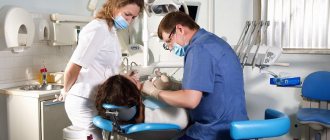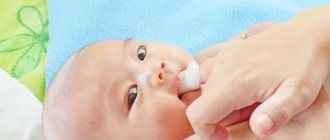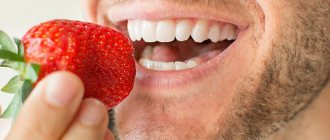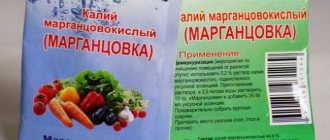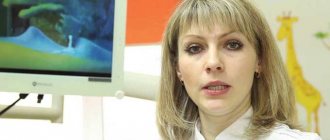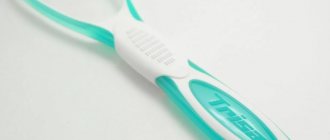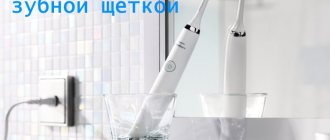Currently, medicine has come so far that diagnostic methods have become more accurate, and a variety of methods allows us to achieve an accurate diagnosis, and, therefore, the treatment prescribed by a doctor will be more effective. The medical center has its own clinical laboratory, which uses the most modern diagnostic methods. In particular, it is possible to use several methods to diagnose the presence of viruses in the human body. For example, a saliva test for viruses is the most informative and accurate.
Why is saliva taken for analysis?
Saliva is a biological fluid with important functions:
- ensuring food chewing;
- formation of a food bolus;
- swallowing function;
- oral cavity protection;
- Salivation is a process that produces lubricant.
It is a colorless liquid with a neutral alkaline reaction, which contains the following substances:
- antimicrobial components (lysozyme, secretory immunoglobulin A);
- digestive enzymes (ptialin, lingual lipase);
- epidermal growth factor;
- chloride, potassium, sodium and other electrolytes;
- amino acids, glucose, lactic acid, vitamins K, C, B1, H.
That is, the composition of saliva completely reflects the structure of blood plasma.
Determination of hormones in saliva
Hormones are powerful molecules needed to maintain physical and mental health. The steroid hormone family includes the estrogens - estrone (E1), estradiol (E2), estriol (E3), progesterone, testosterone, DHEA-S and cortisol. Variation in these hormones plays a large role in the changes observed in major life cycle events such as pregnancy, menopause and aging. Therefore, accurate measurement of hormone levels helps to reliably assess menstrual irregularities in young women, menopausal changes in pre- and postmenopausal women, and changes during andropause in men. An imbalance of any hormone can throw physical and mental health out of balance, causing worsening and even serious health problems.
| There are several ways to test hormones (saliva, serum and urine), but the most modern method is saliva. This is because only the active parts of the hormones are measured in saliva. The test measures the amount of hormone available to target tissues, that is, the bioavailable amount. For this reason, saliva testing better correlates with specific symptoms of hormone excess or deficiency and is a good way to monitor hormone therapy. |
Acceptance of the validity of saliva testing is based on an understanding of the differences between steroid hormones in saliva and serum.
Most hormones exist in one of two forms: free (5%) or protein-bound (95%). Only free hormones are biologically active or bioavailable and available to bind to receptors. Protein-bound hormones do not conform to receptors and are considered non-bioactive. When blood is filtered through the salivary glands, the bound hormone components are too large to pass through the cell membranes. Only unbound hormones enter saliva. The saliva test measures the bioavailable hormone, the clinically significant portion transferred to receptors in the body's target tissues. Salivary hormone levels are much lower than serum values. When prescribing hormonal therapy based on serum hormonal measurements, there is a risk of prescribing overdoses of drugs. If we determine the values of hormones in the saliva of these same patients, the results will be unusually high. Studies show that when topical or transdermal hormone therapy is used, tissue hormone levels (measured in saliva) increase while serum values remain unchanged. Therefore, serum testing cannot be used to monitor this type of hormonal therapy. Only saliva testing is the most accurate tool.
Indications for the study of hormones in saliva
As men and women age, their hormonal levels change. Sometimes these changes lead to symptoms that require attention.
Therefore, hormonal testing is indicated:
- men and women concerned about changes in hormone levels as a result of age;
- women of reproductive age with symptoms of PMS, possibly associated with hormonal imbalance;
- pre- and postmenopausal women, to assess estrogen and progesterone levels, and to decide whether to prescribe hormone replacement therapy;
- those who need to monitor hormone levels after hormone replacement therapy (oral, sublingual or topical);
- men and women of any age who have symptoms of hormonal imbalance.
Anyone with symptoms related to fatigue, insomnia, stress, immune problems, high sugar and excess weight should have their cortisol and sex hormone levels checked.
24.147 Cortisol (saliva) (HPLC)
24.167 Cortisol (saliva, 4 portions) set (HPLC)
24.170 Progesterone (saliva) (HPLC)
24.171 Estradiol (saliva) (HPLC)
24.172 Testosterone (saliva) (HPLC))
24.173 DHEA (saliva) (HPLC)
24.174 Determination of hormones in saliva (DHEA, Progesterone, Testosterone, Estradiol) (HPLC)
24.175 Adrenal stress syndrome and andropause: Dehydroepiandrosterone (saliva), Cortisol (saliva), Cortisol/DHEA (HPLC).
Laboratory research
DNA analysis in saliva does not require special equipment, so the cost of tests in our center does not exceed the cost of an examination using a standard sample. Deciphering the code takes from 5 to 12 days.
To achieve absolute accuracy of the results, 2 analyzes are carried out by 2 independent groups. A guarantee of reliability is both the high-quality equipment of our laboratory and the qualifications of our employees.
Latest articles:
- What is a genetic passport?
- Is DNA testing really reliable?
- How to find out the gender of the unborn child without an early ultrasound?
- NIPT for a happy pregnancy
- DNA test for ethnic origin - frankly and to the point
Article prepared by:
Petrov Dmitry Member of the Integrated Scientific Group Lab-DNA
Analysis of urine
A urine test establishes drug use within 3-7 days of use. The collection of biomaterial is carried out in a dry and clean container in a volume of 50-100 ml. Urine drug testing is carried out using two methods: immunochromatographic and chemical-toxicological.
Immunochromatographic analysis. This is an express method for testing for the presence of narcotic substances in urine, which is carried out immediately after collecting biomaterial. You can get the result in 10-15 minutes. However, keep in mind that it allows you to identify only 14 types of drugs:
- morphine,
- methadone,
- benzodiazepines,
- marijuana,
- heroin,
- phencyclidine,
- amphetamine,
- barbiturates,
- propoxyphene,
- cocaine,
- oxycodone,
- ecstasy,
- ketamine,
- buprenorphine.
Chemical-toxicological analysis. Its main advantage is versatility. This research method detects all known psychotropic substances and drugs in urine. However, the study takes up to 3-4 days.
Urine drug testing is the most common test because it is simple and provides quick results.
Hair analysis
Many drugs are deposited in the hair shaft in small but detectable doses. This makes it possible to determine even a single dose of substances 2-3 months before the study. Hair drug testing has become widespread in Europe because it is highly reliable.
To carry it out, you need to take samples: from 15 to 100 hairs. Before testing, the biomaterial is treated with an organic-based solvent, which is subsequently analyzed. Methods used to determine drugs: mass spectrometry and gas chromatography.
Drugs that can be detected by hair analysis:
- heroin,
- codeine,
- morphine,
- methadone,
- M.D.A.
- MDMA
- methamphetamine,
- amphetamine,
- marijuana,
- trawl.
How to donate saliva
The sample can be submitted to the laboratory. Using a cotton-tipped swab, scrape the inside of the cheek to collect epithelial cells. The smear is dried at room temperature, sealed and transferred to the research laboratory.
How to collect samples yourself at home? To do this, purchase sterile cotton swabs and a sealed plastic bag. Wash your hands thoroughly, rub the stick along the inside of your cheek, then carefully, being careful not to take the sample with your bare hands, pack it in a bag. The sample can be sent by mail.
The procedure is somewhat different in cases where a sample needs to be obtained if the subject disagrees. The most common materials are cigarette butts and chewing gum with traces of teeth and saliva. The minimum amount of biomaterial on them is sufficient for DNA analysis to establish paternity. Samples must be bagged and sent to the laboratory.
A real cocktail
The fluid that is secreted by the salivary glands is a whole cocktail of proteins, vitamins, micro- and macroelements, although most of it, 98–99%, is water.
The concentration of iodine, calcium, potassium, strontium in saliva is many times higher than in the blood. Microelements are also present in the salivary fluid: iron, copper, manganese, nickel, lithium, aluminum, sodium, calcium, manganese, zinc, potassium, chromium, silver, bismuth, lead. Article on the topic Protect the liver. Hepatitis C can be detected by saliva testing
Such a rich composition ensures the proper functioning of salivary enzymes, which begin digesting food in the mouth. One of the enzymes, lysozyme, has a significant bactericidal effect - and it is isolated for the preparation of certain drugs.
What can you find out during the examination?
The highest accuracy of DNA tests allows their results to be used not only for scientific work, but also to establish the truth in controversial issues:
- the study reveals all genetic pathologies and susceptibility to certain diseases, such as diabetes, hepatitis;
- Genetic analysis of saliva establishes relationship with more than 99% accuracy. DNA testing determines both paternity and maternity;
- This is how a close relationship is established when the surnames coincide, for example;
- nationality analysis allows you to determine ethnic group and genealogical origin. It is known that representatives of different nationalities are susceptible to certain diseases to varying degrees. The test result allows you to adjust your lifestyle in order to avoid them;
- in this way, the patient’s addiction to drugs or alcohol is diagnosed, and intolerance to certain medications and products is determined;
- Most often, genetic analysis of saliva is used for personal identification. In forensic science, DNA testing began to be used immediately after the discovery of Dr. Alec Jeffries. The study of any biomaterial from a crime scene - blood stains, skin particles on upholstery, saliva on a cigarette filter - allows you to accurately determine whether a particular person was at the crime scene.
DNA profiling, although not a full-fledged study of the genome, provides a huge amount of information. Using the test results, individual diets are drawn up, rehabilitation methods and treatment regimens are developed, and the cause of infertility is determined.
Rapid drug tests at home
To quickly determine whether your child is using drugs, use a pharmacy test (average cost about 100-150 rubles). The result of the urine test will be available within 1-5 minutes. However, please note that the use of rapid testing does not guarantee the accuracy and reliability of the results.
A rapid drug test can be purchased at a pharmacy, but to obtain a reliable result, you must strictly follow the instructions from the manufacturer.
Is it possible to do a DNA test using saliva?
Saliva is a non-standard sample that contains the same number of DNA fragments as hair, nails, and epithelium. Therefore, it can be used for the procedure. But in order to get the right result, you need to adhere to the basic rule - protect the sample from particles from the outside. Most often, chewing gum is passed along with saliva . This material is packaged in a sealed bag and care is taken to ensure that pieces of skin, blood and various particles do not get in there. Therefore, you should not take the sample with your bare hands. A person may not even notice that a piece of his skin has peeled off or there is a small scratch on his finger from which a drop of blood has flowed.
If the collection is carried out correctly and a sufficient amount of material is provided, geneticists will give an opinion following the standard procedure. By the way, the accuracy of the result is not affected by the amount of material. The only thing that depends on the volume is whether molecular biologists will be able to isolate DNA fragments or not. If this part of the procedure is successful, the result will be 99.9999 percent correct.
